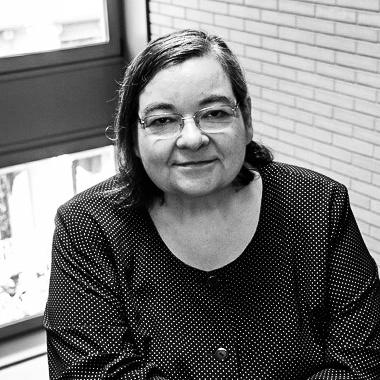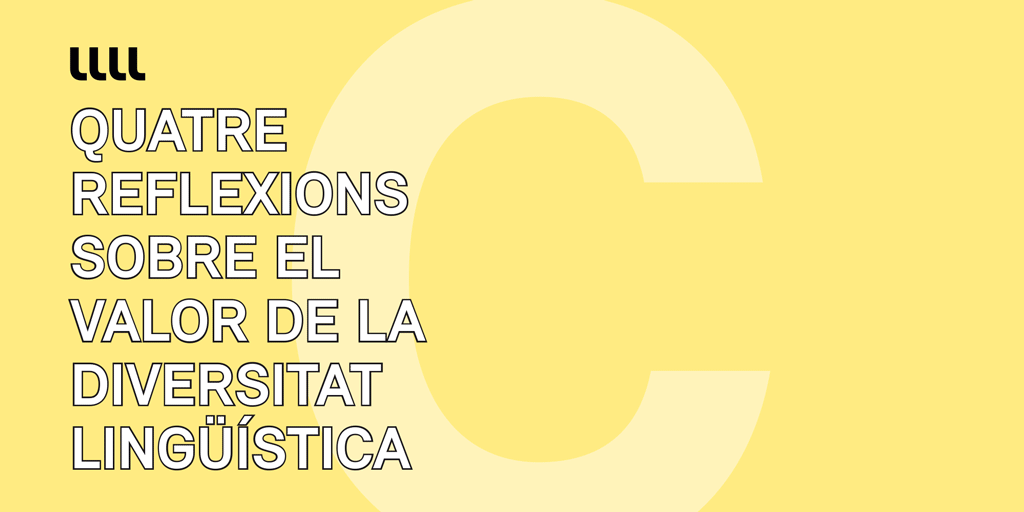1. Diversity breeds knowledge
My last activity before the lockdown was a meeting with three groups of pupils from a high school on the outskirts of Barcelona. The pupils had prepared a series of questions for me, but I offered to ask them questions instead. In the first group, there were pupils who spoke Punjabi, one who spoke Armenian and another who spoke Bengali. I asked them to count to ten in their languages. Straight away, they realised that some digits were clearly the same in all three languages, and based on this discovery, they realised they were also similar to numbers in Catalan, Spanish and English. Once the links between these languages were established, they started to find correspondences between other words.
The second group included some Chinese pupils. I suggested they say a few words to show how tone can change meaning. Their classmates asked them to translate some other words and one of them wanted to know how to say traffic light. I asked them if they could translate it back literally, but one of them said, ‘They won’t understand’. I told them they would understand, and when they said ‘red, green, light’, we discussed how new words are formed when all words are invariable. In the third group, there were some Moroccan pupils and a Maltese girl. They showed that many of the words shared by Catalan and Spanish come from the Arabic and that, while Spanish generally maintains the article al from the Arabic (albornoz, alcachofa, almacén), Catalan tends not to (barnús, carxofa, magatzem), though there are some examples of the reverse phenomenon (berenjena in Spanish, albergínia in Catalan).
If I transfer this experience into the linguistic sphere, it turns out that the first group talked about comparative-historical linguistics, the second, morphology and typology, and the third, language contact. The most important part, though, is that this theoretical knowledge emerged from the pupils’ contributions, from their own knowledge and, especially, from their knowledge of various languages. What happened with these fifteen-year-olds is happening with growing frequency among university students, who are becoming increasingly multilingual and speaking more and more diverse languages. Linguistic diversity in the classroom has paved the way for a new way of learning in which knowledge circulates not only between equals, but also in all directions.
2. Only diversity guarantees depth in knowledge
The Erasmus programme was designed with the main aim of promoting student exchange, but has become a tool for linguistic imperialism and an exercise in segregating students. When they talked about Europe’s diverse linguistic wealth, we all thought they believed it. But, when push comes to shove, it turns out that the only language you need to know to study in Portugal is English, that Italian and Catalan students communicate in English, and that you can go on Erasmus in Poland or Greece without knowing a word of Polish or Greek. On top of all that, many universities offer the same subjects in English and the local language, so Erasmus students end up in the class given in English while the locals attend it in their language, and the two groups rarely coincide. And we haven’t even mentioned the subjects only available in English.
Apart from the fact that this end result goes against the foundational principles of the scheme, this situation demonstrates a rather strange attitude towards knowledge in general. Is there a problem with learning the language of the place where you will be living for at least a few months? Would you visit London without seeing Big Ben? Or Paris without seeing the Eiffel Tower? If you did, wouldn’t we all think you had missed out? How is it, then, that we so cheerfully agree to go to a university in another country to get the same thing we would get at home? The local language is an inextricable part of the exchange and the learning process, and to disregard it is, as well as denying Erasmus students an important part of knowledge, a slight against the host culture promoted by institutions that, as well as training, must focus on education as an objective.
3. Diversity leads to exchange
Translation is one of the most effective instruments in the preservation of linguistic diversity. It is also an enriching process; as well as guaranteeing exchange when there is no common language, it adds the translator’s perspective. Someone in whom at least two languages coexist and who is familiar with the outlook of each of them. In other words, the translator adds diversity to diversity. That is why their work is never finished, even when they have finished translating a text. As Alexandra Grebennikova said at the ceremony for the Ramon Llull Award for Literary Translation, a literary piece remains the same throughout time, while its translation can change regularly. This constant revision, this alternative view of the same reality, is something experienced much less by speakers of dominant languages, which, paradoxically, tend to translate a lot less from other languages. A large market that enables you to survive alone can leave you with a biased, even monolithic perspective on life. Speakers of small languages know they need other languages, both for communication purposes and because they are aware of the limits of their world. Meanwhile, speakers of larger languages may not need another language to communicate, but they are bound by the same limits as everyone else, just without realising. In his Winter Journal, Paul Auster tells us that, at the presentation of a book of his in Arles, Jean-Louis Trintignant read the French translation. And he adds, ‘A double reading, as is customary in foreign countries where the audience is not bilingual’. It seems that not even living in the most cosmopolitan city in the world saves you from, first, seeing translation as an anomaly, and second, from thinking that you cannot be bilingual in a place where English is not spoken. The worst part is that this monolingual world view is contagious. For instance, when Salman Rushdie edited Mirrorwork: 50 Years of Indian Writing 1947–1997 alongside Elizabeth West, he only thought to mention authors who wrote in English. These figures, who have been translated into so many languages, seem not to comprehend that interesting things can be said in these other languages, too.
4. Universities need diversity to avoid submission
In recent years, we have seen many universities reduce and even eliminate their course options in second languages. In this frenzied race not to produce the best knowledge, but to compete instead of cooperating, some have deemed knowledge of languages dispensable or, even worse, an obstacle to production. Perhaps it is relevant that the knowledge of languages and linguistics in general is gradually isolating itself. Even without looking very hard, we can see that, over the course of history, the great contributions to the knowledge of language are not necessarily made by grammarians or language scholars (who, in fact, have often spouted nonsense), but rather by philosophers, logicians, educators, mathematicians, psychologists, anthropologists, doctors, biologists, historians, etc. In other words, authors who have nourished their experience with the knowledge of different languages. The idea that this tradition could be given up for the sake of impact is something I simply do not understand. What impact do articles have if no one reads them because it is impossible to access everything that gets published in English? Losing our knowledge of other languages could even damage knowledge of English, through a lack of perspective. Now that globalisation has made universities clearly multilingual institutions, with lecturers and students from origins as diverse as can be, knowledge of languages must be promoted more than ever. This will allow knowledge that only appears when there is contrast to flourish, add depth to exchange by bringing together learners and speakers of different languages, and guarantee the perpetuation of the tradition of translation. Finally, it will remind us that things can be done differently and make universities truly open institutions where everything their members can give is valued and where the knowledge offered is free of any ethnocentric bias, which, after all, is their worst enemy.
M. Carme Junyent
Grup d’Estudi de Llengües Amenaçades
Universitat de Barcelona








